The ecological rucksack of food
Germans consume 456 kilograms of food per capita per year. It is an amount which corresponds to half a football pitch in land take, 84 full bathtubs of water and greenhouse gas emissions equal to a roundtrip flight from Frankfurt to New York. In addition, production and transport consumes energy. Food production in Germany involves the use of 46,000 tonnes of plant protection agents every year, 5.3 million tonnes of chemical fertilizer and about 220 million tonnes of commercial fertilizer.
Nearly 81 of the 456 kilograms consumed per capita per year becomes food waste. That is a rate of almost 20 percent – the equivalent of two loaded shopping carts, or about 230 euros worth of food.
For more on the environmental impact of food waste and measures to prevent it see "Development of tools to prevent food waste".
Catering in everyday life
The catering market in Germany is an exciting market with excellent prospects with billions of euros in turnover. Yet this sector of the food and service industry is extremely complex, very heterogeneous and has gone largely unanalysed up to now. Catering as a form of "eating out" ranges from the snack bar at the next corner to the canteen at a public authority to a fine-dining restaurant in the countryside. Catering is even offered in football stadiums, concert halls, on airplanes, ships and at trade fairs. The number of meals served can start at about 20 meals per day served at day care centres, for example, and go up to 20,000 people served at major events such as fairs and festivals.
Catering harbours potential to relieve environmental pressure
Current research indicates that about one-third of the food used for consumption away from home becomes waste, which makes the potential to prevent food waste in this sector significant. There are many ways to prevent food waste with little effort.
Little tricks, big results
Even the smallest measures such as optimal calculation of quantities, restocking the buffet as needed or using smaller plates and smaller portions are not only economical for the individual catering business but also have a great ecological impact and act as a model for all the players in the market.
Taking a look at professional catering
The focus of the UBA Guideline "Prevention of food waste in the catering sector" is on the professional event catering sector which is behind public events such as city festivals, exhibition openings, sports events, music festivals and fairs, private gatherings such as family get-togethers, or corporate functions like business start-ups, company anniversaries, branch office openings and meetings.
The guideline illustrates how careful planning and consideration of all the steps involved in catering an event can significantly reduce food waste and how to make good use of leftovers which may nonetheless be generated.
Whom is this guideline for?
The practical guide is aimed at both caterers, their staff and suppliers, the customers of a catered event, and anyone else who is interested in hosting a catered event. The target group also includes event managers, agencies and all other stakeholders of the catering trade.
Fact Sheets – key advice at a glance
Ten different Fact Sheets address all the sticking points when it comes to the prevention of food waste for all the stakeholders in the catering sector. Caterers and kitchen staff can learn about modern food storage and well organised distribution of food. Other Fact Sheets have information about ensuring feedback from guests and customers as well as the possibilities of passing on leftovers to non-profitmaking institutions like the "Tafeln" (German foodbanks).
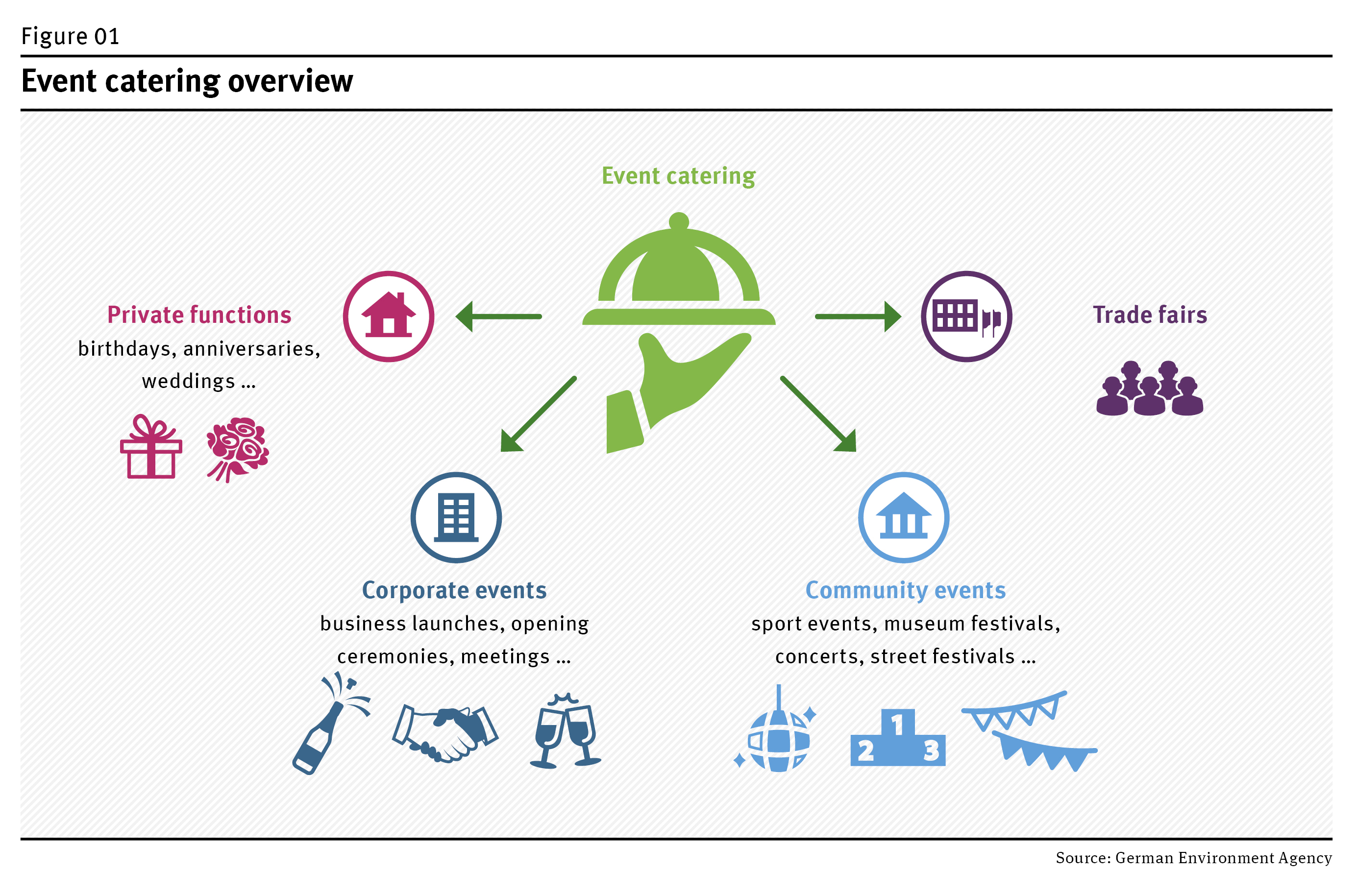
Many events are catered. Waste can be prevented systematically.
Source: Umweltbundesamt
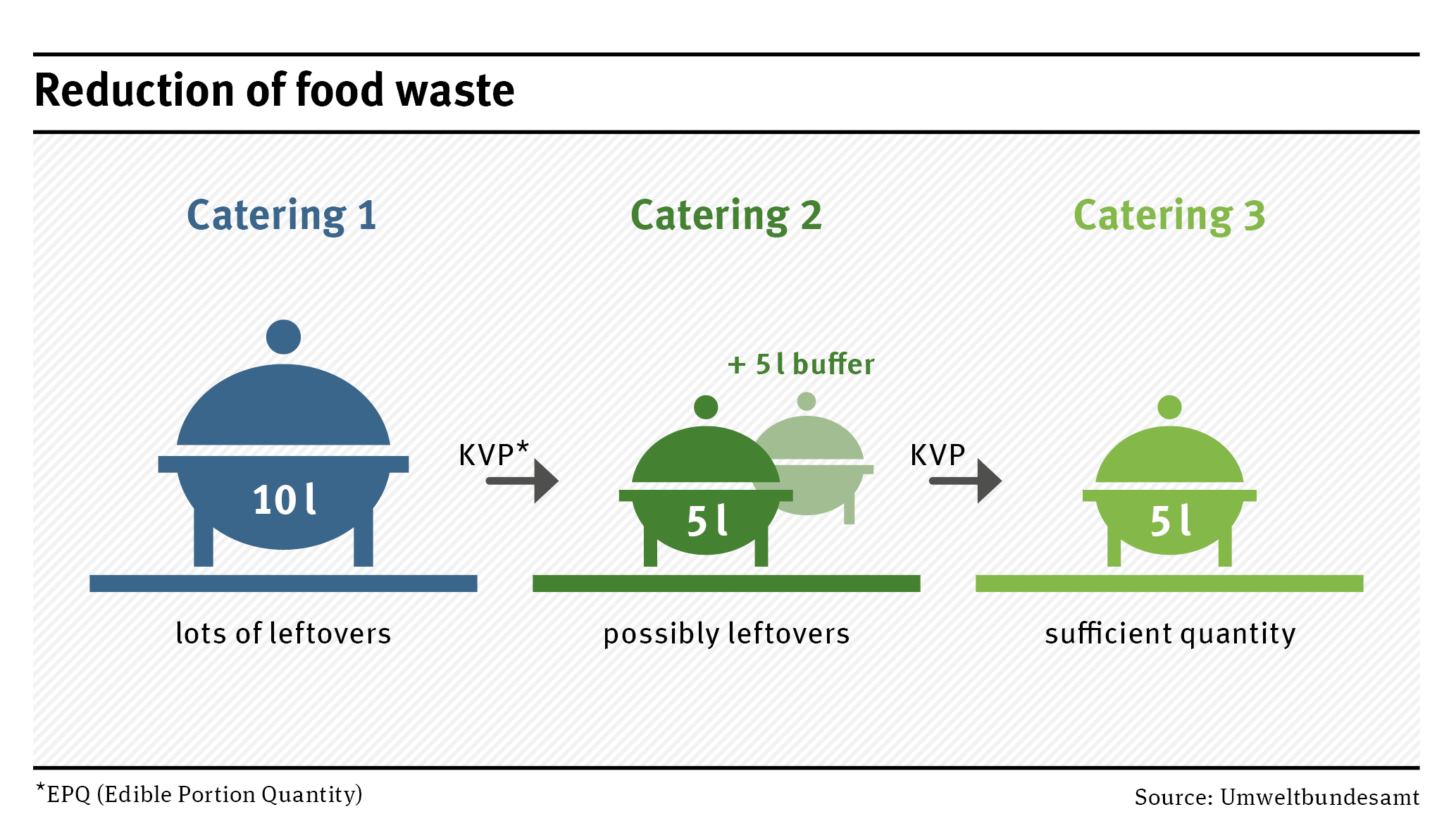
Proper planning of food quantity is essential in catering.
Source: Umweltbundesamt
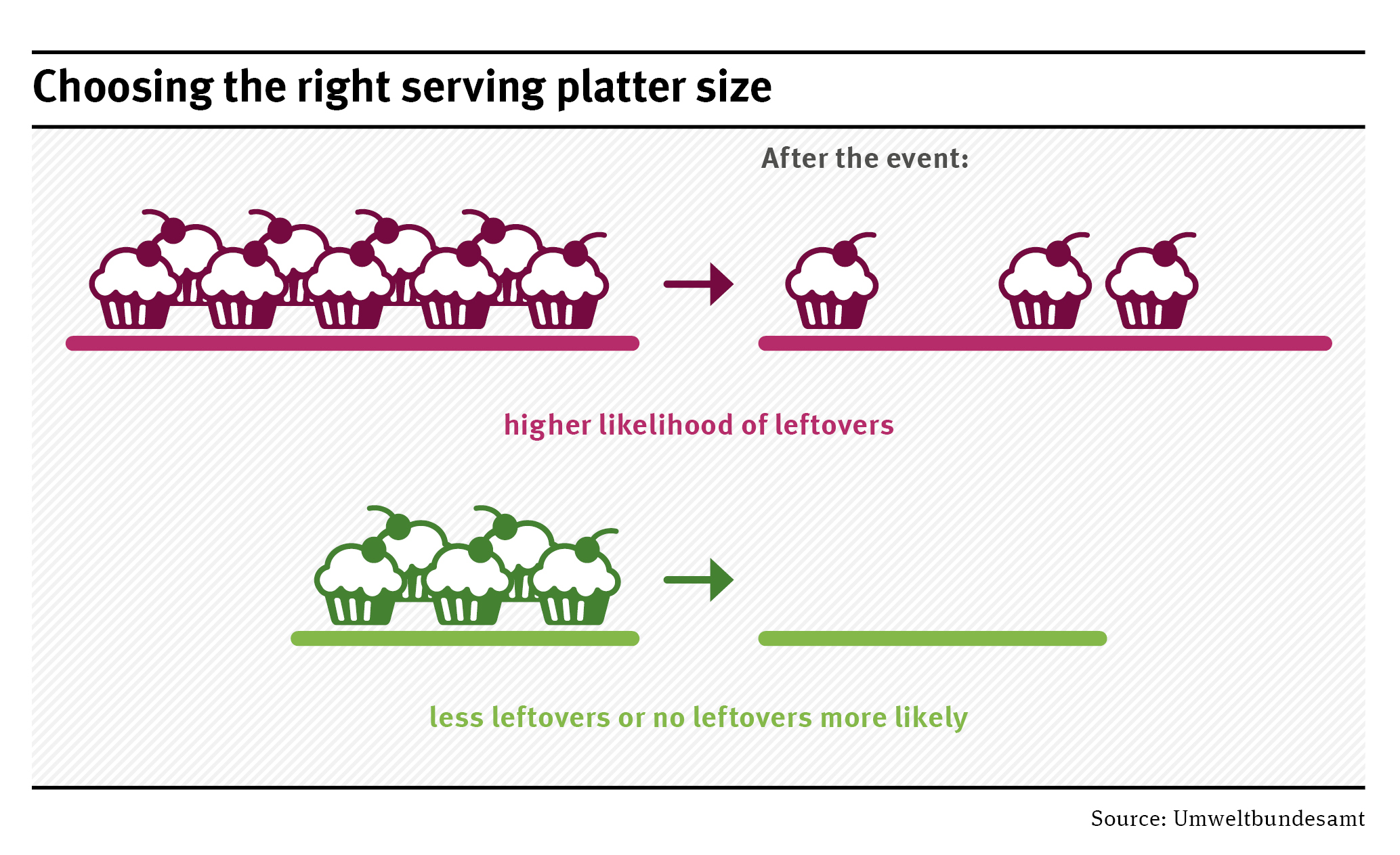
Smaller plate size reduces food waste.
Source: Umweltbundesamt
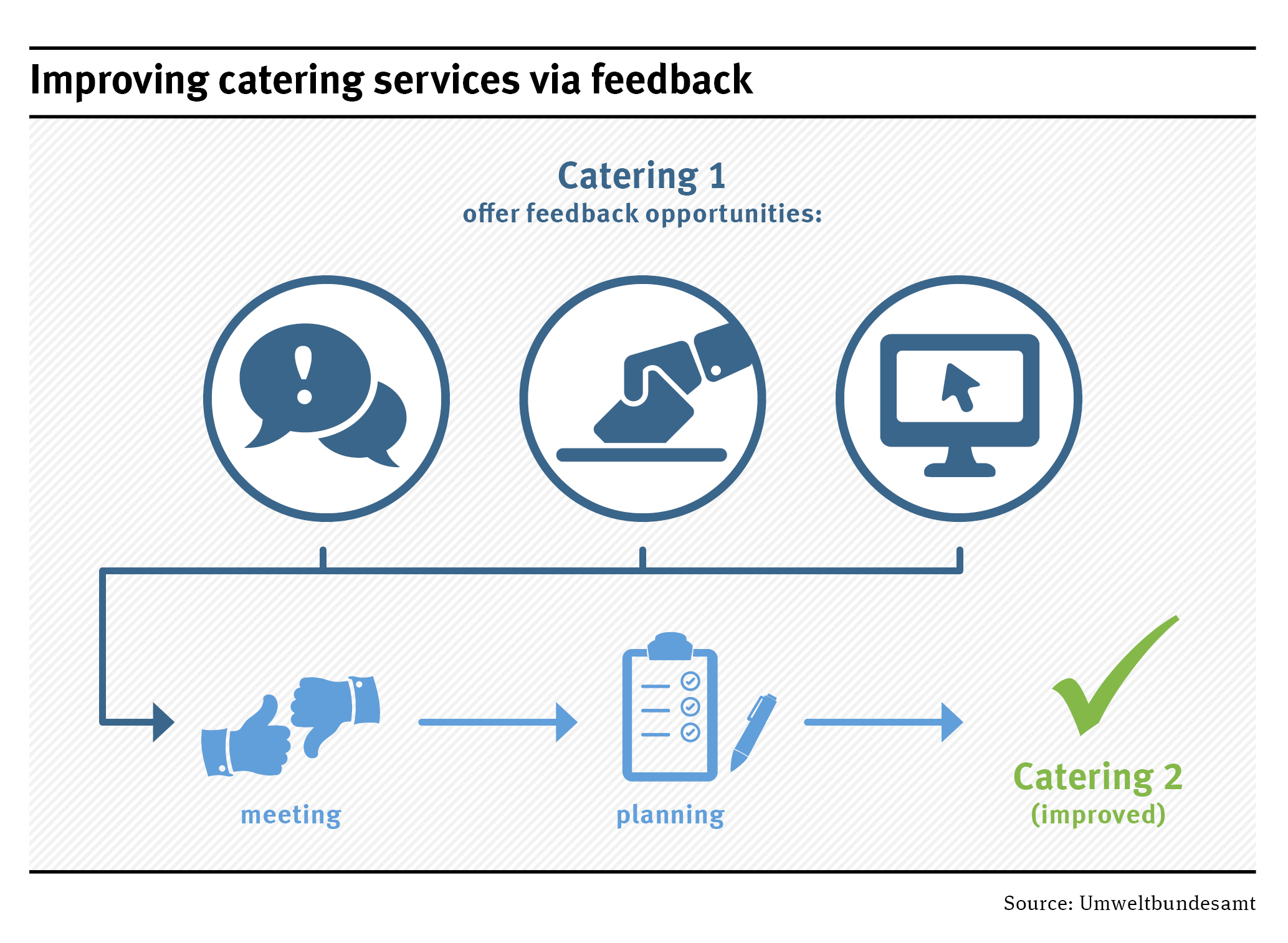
Feedback about quantity and quality of food helps to reduce food waste at future events.
Source: Umweltbundesamt
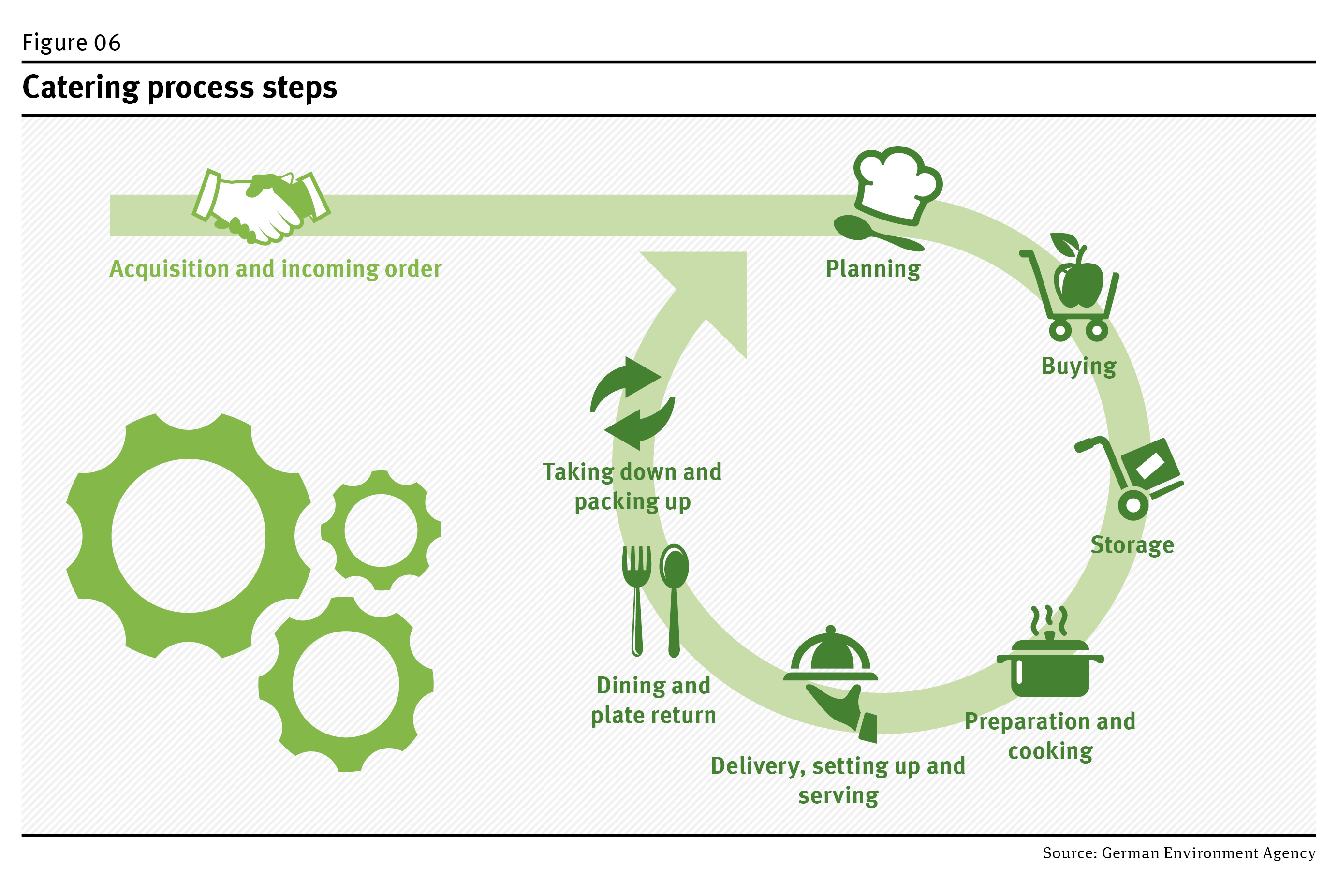
The catering guideline by the UBA has practical advice on every step in the process.
Source: Umweltbundesamt







